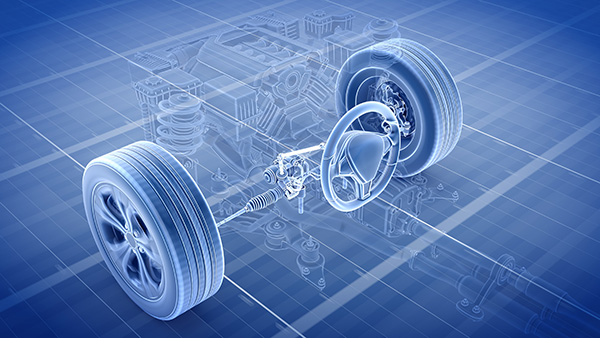
If your car makes an odd groaning or squeaking sound every time you turn the steering wheel all the way left or right, you’re not imagining things. These sounds are your vehicle’s way of saying something isn’t quite right or, at the very least, it’s under stress. While occasional noise may not signal a major issue, persistent or worsening sounds should not be ignored.
Let’s find out what these noises usually mean and why they often happen during full-turn maneuvers.
Steering System Pressure at Its Maximum
When you turn your steering wheel to its furthest limit, you’re putting the power steering system under maximum load. This is especially true if you hold the wheel in that position for more than a couple of seconds. The groaning sound you hear is often the power steering pump straining under that pressure, particularly if the fluid is low or degraded.
Power steering fluid lubricates and powers the hydraulic system. When the fluid is old or below the proper level, the pump has to work harder, which produces more noise. Over time, this extra strain can shorten the life of the pump or cause it to overheat.
Dry or Failing Suspension Components
Turning sharply also puts stress on the suspension. If bushings, ball joints, or tie rods are worn or dry, they can squeak when they shift under pressure. This sound is often more noticeable at low speeds, such as when parking or navigating tight turns.
Groaning noises may also come from strut mounts or control arms that are starting to wear out. These components help keep your tires aligned and your steering precise. When they start to fail, you may also notice changes in handling or uneven tire wear.
CV Joints and Axle Issues
If your car is front-wheel drive or all-wheel drive, the constant velocity (CV) joints are another likely source of noise during turns. These joints allow the front wheels to pivot while receiving power from the engine. When a CV joint is worn or its protective boot is cracked, grease can escape, and dirt can enter, leading to clicking, squeaking, or groaning sounds when turning sharply.
A damaged CV joint should be replaced promptly to prevent further drivetrain damage and avoid a sudden loss of power to the wheels.
Belt or Pulley Problems
Sometimes, the sound isn’t from the steering or suspension at all but from a worn serpentine belt or pulley. This belt often drives the power steering pump. If it’s slipping or cracked, it will squeal when put under heavy load, such as when you’re at full steering lock.
Checking the condition of the belt and tensioner can reveal whether it’s the source of the noise. Replacing a worn belt is a simple way to avoid bigger problems down the road.
Brake or Tire Contact
In some cases, the tires themselves may be rubbing against a fender liner or suspension part when turned to the extreme. This is more likely if the car has been modified with larger wheels or tires. Brake components can also shift slightly during hard turns, creating creaks or squeaks if there’s wear or looseness in the system.
While not as serious as other issues, this kind of interference still warrants attention to prevent long-term wear or damage.
When to Have It Checked
If the groaning or squeaking sound only happens briefly and disappears as soon as you straighten the wheel, it may not be a major concern. However, if the noise is getting louder, lasting longer, or is accompanied by stiffness or steering resistance, it’s best to get it checked. Persistent sounds often point to a developing issue that’s easier and cheaper to fix early on.
DRIVE AutoCare – Steering and Suspension Inspections in Solana Beach, CA
At DRIVE AutoCare in Solana Beach, our technicians know what to listen for and where to look when your car starts making unusual sounds during tight turns. Whether it’s a power steering issue, a worn suspension part, or something more hidden, we’ll pinpoint the cause and fix it the right way.
Schedule your inspection today and steer with confidence on every curve and corner.